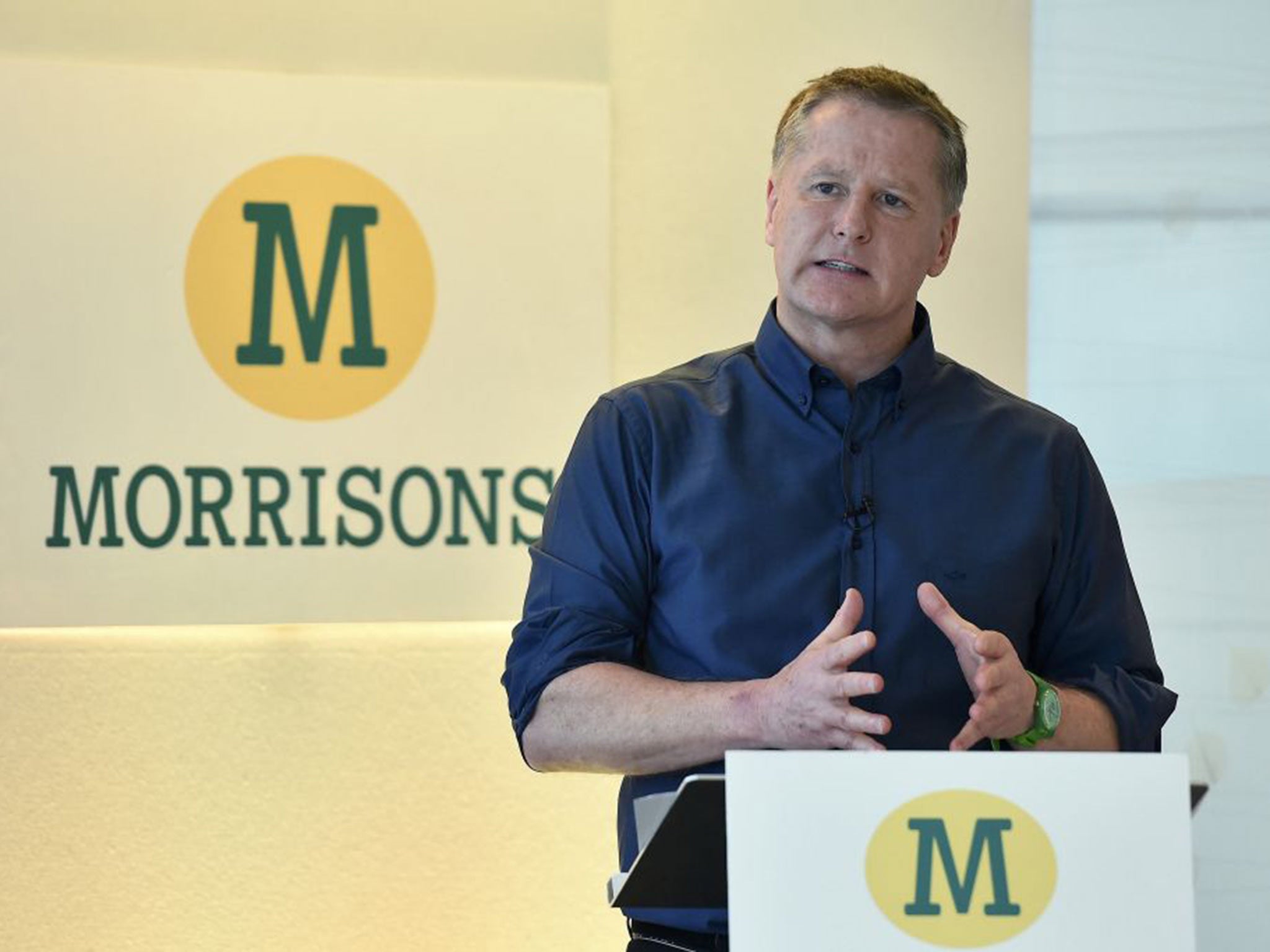Morrisons and the problem with CEO pay
David Potts has done a brilliant job with the previously struggling retailer, but Morrisons paid £12m to the man who left it in need of the turnaround

Your support helps us to tell the story
From reproductive rights to climate change to Big Tech, The Independent is on the ground when the story is developing. Whether it's investigating the financials of Elon Musk's pro-Trump PAC or producing our latest documentary, 'The A Word', which shines a light on the American women fighting for reproductive rights, we know how important it is to parse out the facts from the messaging.
At such a critical moment in US history, we need reporters on the ground. Your donation allows us to keep sending journalists to speak to both sides of the story.
The Independent is trusted by Americans across the entire political spectrum. And unlike many other quality news outlets, we choose not to lock Americans out of our reporting and analysis with paywalls. We believe quality journalism should be available to everyone, paid for by those who can afford it.
Your support makes all the difference.How much is a chief executive worth to an organisation? Quite a lot, if you consider the case of David Potts, the boss of supermarket chain Morrisons.
Under Mr Potts, the business has just enjoyed its best Christmas in seven years, reporting a 2.9 per cent increase in sales excluding fuel at stores open at least a year.
It has also enjoyed its fifth consecutive quarter of growth, quite an achievement given how competitive the grocery sector is at the moment, and is getting rave reviews in the City.
No chief executive is worth the sort of money they get paid these days. But if you want an example of one that comes close, Mr Potts might be that individual.
Under his leadership, Morrisons pulled out of the convenience sector, which it arrived late to, it struck a deal with Amazon to improve the company’s online penetration, tired old stores have been refreshed and revitalised.
There is also the fact that, as Mr Potts noted: “We stocked more of what our customers wanted to buy.” Retail isn’t a terrible complicated business, but lots of retailers still seem to struggle with that.
Of course, Mr Potts didn't achieve all this on his own. Business is a team sport, and it takes many people working together to drive a turnaround.
Nonetheless, it’s fair to say that there won’t be many - any? - voices raised in protest when the company issues its remuneration report, however much Mr Potts is in line for.
But here’s why I highlighted Mr Potts and CEO pay generally when considering Morrisons. Because, for Mr Potts to succeed so spectacularly with his turnaround plan, and if people are going to credit him for it, and pay him for it, it’s fair to ask another question. How much did Morrisons rate his predecessor, Dalton Philips, as being worth for leaving it in the beaten up state in which Mr Potts found it?
The answer to that is a shade under £12m between 2010 and the beginning of last year, which includes the salary Mr Philips was paid during his 12 months of notice after stepping down.
If you exclude that last year and consider the retailer's performance when Mr Philips was in charge, it under performed the FTSE 100 and it under performed the supermarket sector. It arrived late to the online party, signing a deal with Ocado that has had his successors tearing their hair out. There was also that convenience store business I mentioned, including a deal to buy a load of ex-blockbuster video stores that blew up in the company's face.
Just before Mr Potts started, Morrisons reported its worst results for eight years, racking up an £800m loss.
For Mr Potts to put a turnaround plan into effect, someone has to be held responsible for leaving it in a state to need one. Someone needed to create the conditions for Mr Potts to make his name.
That man is Dalton Philips, who was paid £12m for doing so, including a chunky bonus in his last year as CEO. He was also made a good leaver, allowing him to get his hands on a bunch of share options.
It’s an extreme case. Plenty more CEOs are paid similarly silly sums for simply being very mediocre. But it explains why people get so cross. Celebrate Mr Potts, by all means, but remember how he and Morrisons got there.
Subscribe to Independent Premium to bookmark this article
Want to bookmark your favourite articles and stories to read or reference later? Start your Independent Premium subscription today.
Join our commenting forum
Join thought-provoking conversations, follow other Independent readers and see their replies
Comments